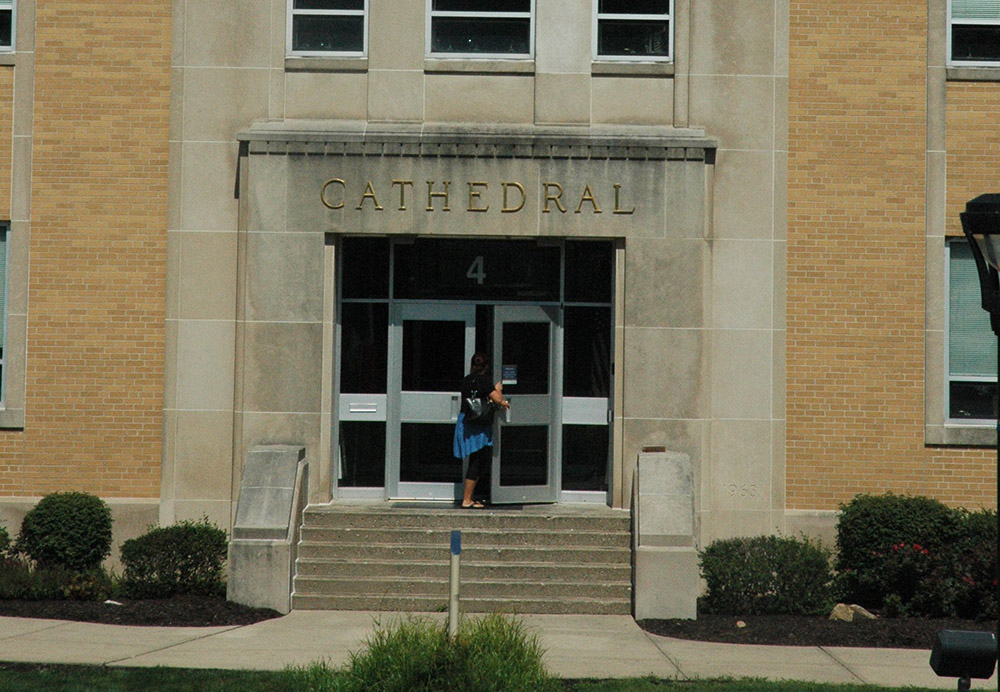
(Dreamstime/Mauriceyom98)
I am Catholic, but I think I was legally a "minister of Judaism" for a few years. If I was, I could have been fired at any time, for any reason. I'm not sure because nobody ever told me I was a minister. That's a problem, and it's one that Catholic institutions can do something to remedy.
I taught history at a Jewish day school, and because of legal arguments advanced by Catholic institutions or bishops, nearly all K-12 teachers at religious schools are now considered ministers for the purposes of an employment law rule called the ministerial exception. Under the rule, legal ministers can be fired (or not hired) for any reason, including reasons normally forbidden under law — for their race, for having a disability, for reporting misconduct by their bosses.
Most recently, the New Jersey Supreme Court held that a Catholic school could not be liable for firing a part-time art teacher and preschool aide for becoming pregnant while unmarried.
The justification for the rule is sound. The government can never tell a church or mosque or synagogue or temple that they must hire or cannot fire a specific religious leader, because if the government had the power to tell a community under whom they must worship, the government effectively has the power to direct how a community must worship.
Issues of leadership are inextricably intertwined with issues of doctrine — especially for members of the many religious groups who require that their congregational leaders be men, which, without the ministerial exception, would be illegal under Title VII of the Civil Rights Act. But the rule can be necessary in more quotidian disputes, too.
If a congregation claims it fired a minister for unorthodox preaching while the minister claims to have been fired due to discrimination, a court would have to hear arguments about the content of the preaching and decide whether the congregation was really offended or whether their complaints about preaching were merely a pretext. The possibilities become very uncomfortable, very quickly.
Advertisement
We allow religious organizations to break anti-discrimination rules that we consider very important because the alternative is to allow the government to break the equally important, and constitutionally required, rule that it not control religion. In a choice between trusting religious organizations not to use their autonomy for evil and trusting the government not to use its regulatory power to unduly influence religion, we choose to trust religious organizations.
But many religious institutions fail to recognize the inherent public trust at the core of this bargain. And, at the moment, Catholic organizations are misusing that trust by failing to tell their employees up front about their lack of employment protections.
In addition to full-time teachers of core subjects, religious litigants have argued that part-time elective teachers, volleyball coaches, college professors and attorneys in social service organizations are all legal ministers. Catholic organizations employ tens of thousands of these employees across the country, and almost none of them know that they have no legal employment protections.
In fact, Catholic school employee handbooks continue to cite nondiscrimination law and to promise their teachers that they will not discriminate against them. For example, in a recent dispute between a Catholic high school and its principal over allegations of racial discrimination, the principal pointed to language in his contract that promised, "The School will not tolerate discrimination or harassment based upon these characteristics or any other characteristics protected by applicable federal, state or local law."
Later, though, the school argued in court that it wasn't bound by any law preventing discrimination in its relationship with its employees, including the principal — and the school won. A lot of conflict and heartbreak could have been avoided by being more honest and upfront in the employment contract and employee handbook.

Cathedral High School in Indianapolis is seen in this 2018 file photo. In 2022, the Indiana Supreme Court ruled against a lawsuit filed by a teacher who was fired from his job at the school because he was in a same-sex marriage. (CNS/The Criterion/John Shaughnessy)
Some Catholic employers may protest this description of their contracts and handbooks as less than honest and forthright. Many, if not most, employment contracts by Catholic organizations do describe the core religious mission and principles that employees are expected to contribute to and uphold. These documents may say that employees can be fired for violating Catholic doctrine in some way.
But such statements are a very different thing from the full truth, which is that Catholic employers can — and Catholic employers have and will — refuse to face employees in court who can credibly accuse them of otherwise-illegal discrimination, harassment or retaliation, even if there is no claimed doctrinal reason for it. That's the law, and it's the law that the U.S. Conference of Catholic Bishops advocated for.
Most ministerial employees of Catholic organizations don't know this. We should tell them.
It would look something like, "You are a minister of the church. That means that our relationship with you is wholly mediated by religious and canon law, not secular law. We will do our best to treat you well, in accord with Catholic teaching on the dignity of the person and the worker. But if you are ever unhappy with the way we treat you, you will not have the ability to go to a court to ask them to intervene. Any decisions related to your employment are our domain alone. In the interest of transparency, please sign here indicating that you understand what you have been told."
I've written elsewhere, in more depth and for a legal audience, that courts shouldn't enforce the ministerial exception where a religious organization explicitly promises employees that they will honor anti-discrimination protections. But Catholic organizations don't need to wait for courts. We can begin telling our teachers and other ministerial employees the unvarnished truth now: If you choose to teach at a Catholic school, you will not be protected by employment law. We hope you'll work here anyway.





